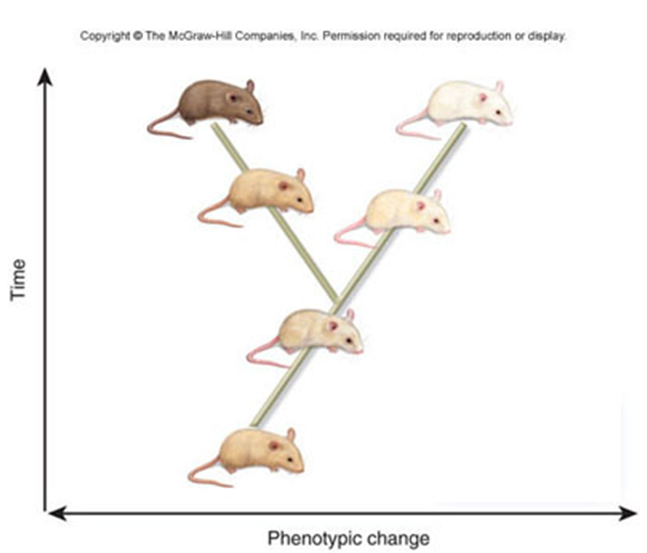Cancer cells form in our bodies every day. How does the immune system destroy them?
A) Immune secretions, such as interferon, disrupt the DNA of the cancer cells.
B) The immune system cannot destroy cancer cells.
C) Fevers slow the replication of cancerous cells.
D) Natural killer and cytotoxic T cells recognize the cancer cells as foreign and attack them.
E) Antibodies attach to the cancer cells and then macrophages engulf them.
D
You might also like to view...
The figure above is an example of

A. punctuated equlibrium.
B. anogenesis.
C. gradualism.
D. speciation based on sexual selection.
E. anogenesis and speciation based on sexual selection.
A biologist has been studying a mollusk that does not have a shell. It lives in the marine environment. Of the examples given below, which one did the biologist study?
A. clam B. snail C. nautilus D. chiton E. octopus
The fungus, Batrachochytrium dendrobatidis, is a chytrid that infects and kills frogs in North America. It is an example of:
a. a parasite b. a toxin c. a decomposer d. a fermenter e. a mycorrhizal fungus
Which type of plant tissue is specialized for conducting fluids?
a. dermal tissue b. meristem c. protoderm d. vascular tissue